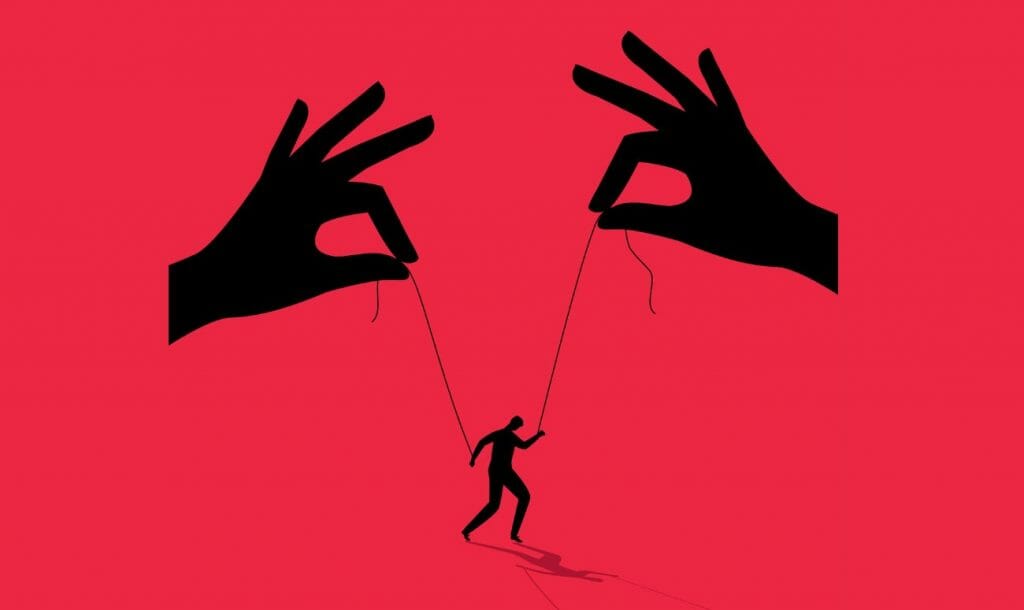“I never said that.”
“You remember it differently.”
“Why are you overreacting over this?”
These are some of the go-to gaslighting phrases that often come up in conversation. Gaslighting in simple terms refers to undermining another person’s reality by denying facts, the environment around them, or their feelings. Typical triggers that create a stressful environment that can lead to gaslighting include topics such as money, sex, your family of origin, or habits you brought into the relationship.
Gaslighting can happen in romantic relationships, families, friendships, and even workplaces, and is often a sign of an abusive relationship.
Why is Gaslighting So Damaging?
Doubting your sanity is scary. If you are deliberately and routinely made to doubt your accurate thoughts, feelings, and perceptions, then it can damage or even destroy you as a person. Besides hurting your self-esteem and emotional stability, gaslighting can be particularly damaging to a relationship because it detracts from the “shared reality” you have with your partner.
Here are a few signs you can look out for to determine if you’re a victim of gaslighting in your relationship
Their Actions Don’t Match Their Words
Although a gaslighter insists that they care about you, they ultimately flake on plans time and again, then swear that the plans never existed in the first place. They’re telling you what you want to hear, then doing whatever it is they wanted to do in the first place.
They Question Your Sanity
A gaslighter will question your version of events, saying you’re paranoid or imagining things to make you feel like you’re going insane.
Constantly questioning your reality is a way to make you feel like there’s something really wrong with you. In the end, you’ll believe you actually need the other person’s perspective to remember.

You Feel Unsure of Yourself
Over time, a gaslighter’s behaviours cut into a victim’s self-confidence. You might start believing everything to be your fault and apologize all the time, then wonder if you’re too sensitive. There will also be times when you may feel anxious and isolated. You might question your thoughts, and feelings, and have a hard time making decisions.
What Can You Do in this Situation?
Gaslighting works best when the victim isn’t aware of what’s happening. Thus, often the first step to protecting yourself from gaslighting is to recognize its presence. Once you understand what’s happening, you’ll be better equipped to prepare to fight back, or at least call the gaslighter out on their behaviour and make them reconsider what they are doing to you.
Here’s How You Can Navigate the Situation:
Don’t Argue on Their Terms
For a gaslighter, the prime goal is to avoid accountability while slowly causing you to foster an emotional dependence on them. To tackle this, stand firm in your truth. Believe in yourself, own your perception, your feelings, and what you know to be true.
Cut Off Communication If Need Be
Often a gaslighter is incapable of remorse and reflection, so even if you explain why they’re hurting you, they’re unlikely to understand your perspective. Hence, justifying your feelings to them will most certainly make them question and belittle your emotions if they are not aligned with their own. In such cases, cutting off communication with a gaslighter eliminates the attention they are trying to attain from their victim. In addition, once you establish some kind of distance from the person gaslighting you, it will be easier to recover from the relationship.

Keep Proof Handy
To help you ground yourself in your own truth, it can be helpful to record things as they are happening. Journal about your experiences with dates and review your writings. This will help you feel confident about what you know to be true.
Seek Help
Remember turning to a friend, family member, or trusted coworker to validate your feelings won’t be easy, as a byproduct of gaslighting is the feeling of isolation; the victim has been manipulated to believe that their abuser is the only one who truly understands them. In such cases, friends and family could act as an unbiased third party who can reality-check the situation and remind you that what you’re feeling isn’t “crazy” or “exaggerated.”
Be Compassionate and Focus on Yourself
This is really hard even when you are not in a compromising dynamic. It’s understandable that in such a situation, it could get even more challenging to give yourself the benefit of the doubt, kindness, and love. But, because it takes such a huge toll on your mental health, self-care becomes equally paramount.
Bottom Line:
Even if you have been gaslighted, it doesn’t mean that things can’t be remedied. Through increased emotional awareness and learning to identify the gaslighting, you can learn to validate yourself. However, all said, just like other forms of psychological abuse, gaslighting can affect you even after you’ve cut ties with the person responsible. If you are finding it difficult to cope, seek out the help of a licensed therapist—specifically someone who specializes in relationship therapy—who can help you define what you’re going through and help you get past it.
About the author:
Suhasini Jha is a Mumbai-based ex-journalist who has previously worked with Firstpost and Moneycontrol.
Read more: The Meaning of Tayata Om Mantra & Its Benefits
Like & Follow ThinkRight.me on Facebook, Instagram, Twitter and Telegram to stay connected.






























